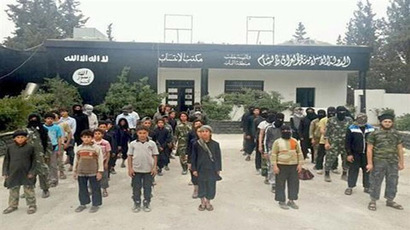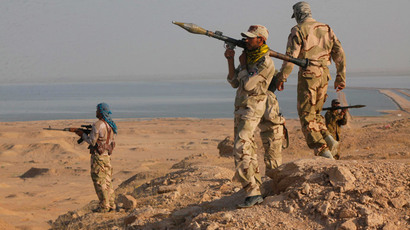Mass executions, torture and child soldiers: UN reports 'terrible' war crimes in Iraq
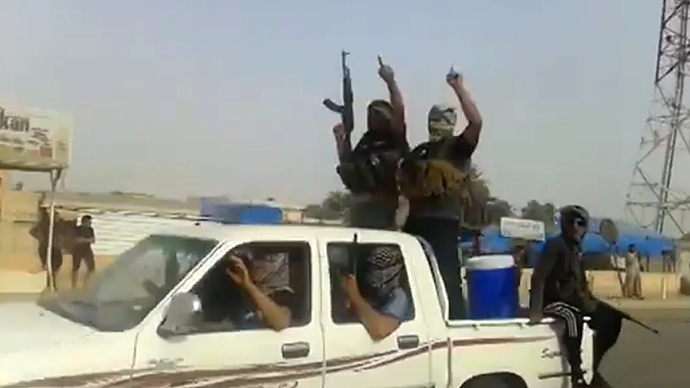
More than 5,000 Iraqis have died in the violence in the country so far this year, a large proportion of them women and children suffering gruesome deaths at the hands of ISIS extremists and over-zealous security forces, says a detailed new UN report.
“Every day we receive accounts of a terrible litany of human rights violations being committed in Iraq against ordinary Iraqi children, women and men, who have been deprived of their security, their livelihoods, their homes, education, healthcare and other basic services,” said UN High Commissioner for Human Rights, Navi Pillay.
“The deliberate or indiscriminate targeting of civilians, the killing of civilians, the use of civilians as shields, the hindering of access for civilians to humanitarian assistance may amount to war crimes or crimes against humanity. Parties to the conflict are required by international human rights law and international humanitarian law to prevent such violations and abuses from taking place.”
The new report says that June, which marked the escalation of the offensive by the Sunni jihadist group ISIS, has been the most chaotic, with a conservative estimate of more than 1,500 people killed and more than 600,000 displaced from their homes, half of the total number of internal Iraqi refugees.
“ISIL (ISIS) and associated armed groups have carried out many of these attacks in a systematic manner heedless of the impact on civilians, or have systematically targeted civilians and civilian infrastructure with the intention of killing and wounding as many civilians as possible. Targets have included markets, restaurants, shops, cafes, playgrounds, schools, places of worship and other public spaces where civilians gather in large numbers,” said the report.
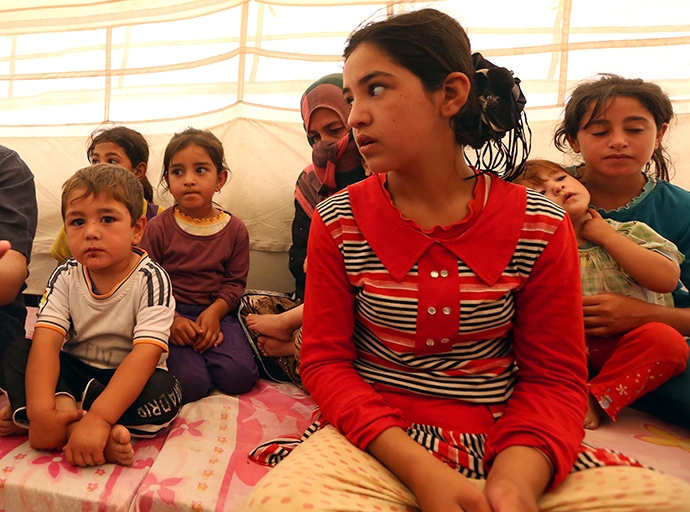
Among the atrocities committed by the group is the execution of 480 Shia inmates in Badush prison in the newly-captured city of Mosul on June 10, which turned so bloody “that some detainees were able to flee and others survived by pretending to be dead under the bodies of other detainees.”
The report also notes systematic terror tactics used against those not killed or shrines not destroyed in initial ISIS assaults, such as the ‘Watheqat al Madina’ statue in the Ninewa region.
“The document authorizes the execution of any persons failing to abide by the rules, destroying religious sites of other schools of thought or religions, and restricting severely women’s right to freedom of movement among other preoccupying regulations.”
Predictably, those most vulnerable in peace-time – women, children, minorities and the disabled – have been “disproportionately” affected by the outbreaks of violence.
“Credible information on recruitment and use of children as soldiers was also received and the United Nations has started documenting cases despite the sensitivity of the information and fears of families. Children are recruited by armed opposition groups, including ISIL and associated armed groups, and used as informants, for manning checkpoints and in some cases as suicide bombers.”
The US-backed Shia government, whose rigidity and neglect of Sunni-dominated areas is thought to have provided a fertile ground for a sectarian uprising, also comes in for severe criticism.
“UNAMI has also documented violations committed by the Iraqi Security Force and affiliated forces – including summary executions/extrajudicial killings of prisoners and detainees, which may constitute a war crime and, on occasion, lack of adherence to the principle of distinction and proportionality or failures to take necessary precautions to protect civilians in carrying out military operations.”
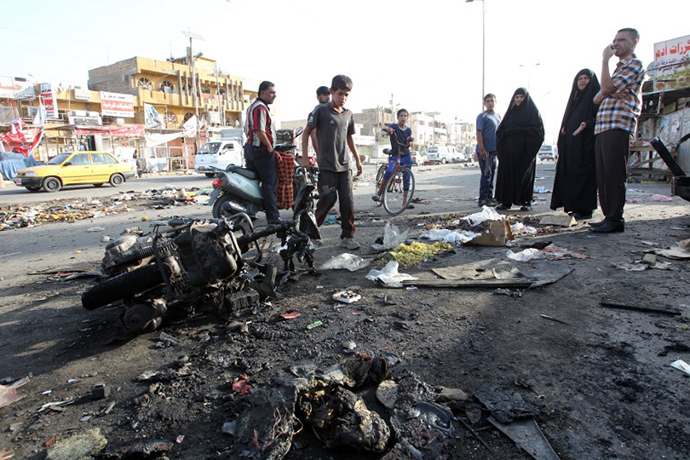
In many incidents described, the unchecked actions of security officers, and nebulous “pro-government” militias are identical in their style and impact to those of ISIS.
“On 21 June, nine internally displaced families from Jalula reported that their homes had been burned by Shia militiamen in revenge for their families allegedly being sympathizers of ISIS,” says one entry in a litany of abuses that relied largely on direct evidence from witnesses and victims.
“It was reported on 15 June, that on 14 June, 31 detainees were executed at the al-Qalaa police station in Tal Afar by ISF when fleeing their posts shortly before the approach of ISIS. Reports state that 36 detainees were ordered to leave their cells by one officer and three policemen who then proceeded to open fire,” claimed another.
While the report is concrete in its detailing of problems, its proposed solutions about the need for “respect for human rights” are abstract and unenforceable. But Nickolay Mladenov, who heads the UN mission in the country, believes real progress can only arrive with the creation of a consensus government to replace Nouri Maliki, who has been in power since 2006.
“It is vital that Iraqi leaders quickly move forward on the nomination of a new President and a new Government. An inclusive political process, cooperation between Baghdad and Erbil (the Kurdish capital) as well as a nationally accepted security plan are important elements in restoring the rule of law and bringing the country back from the brink of chaos,” said Mladenov.













